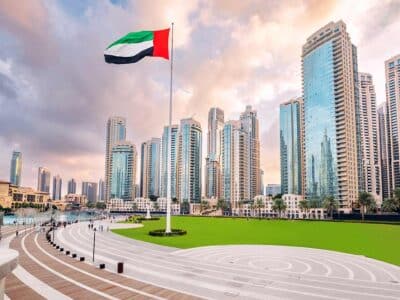Lisbon has long been overlooked as a city-break destination, but a growing awareness of its shopping, dining and cultural options has finally put the Portuguese capital on the radar, says Lucy Taylor.
The Portuguese capital Lisbon is a jewel of a city, but it is often overlooked in favour of Spain or other larger European countries.
The destination boasts a river, port and seaside towns within easy reach and is rich in culture and history, not to mention a generous smattering of high-end shopping areas and top quality restaurants.
Portuguese tour guide Carla Ribeiro notes that a large number of the region’s visitors derive from countries such as Spain, the UK, France and Germany.
“But we are increasingly seeing visitors from all over the world,” she adds.
“Since the 1998 World Exhibition and the European Championship in 2004, we have noticed that word of Lisbon is spreading to all corners of the planet.”
Sheraton senior vice president, regional director Spain and Portugal Philippe Cassis notes that there has been a marked increase in interest from the Middle East market in recent years.
“It’s interesting to see that the Middle Eastern market for both Portugal and Spain has grown by 14.7% between August last year (2007) and August this year (2008),” he says.
“So I think there’s a growing appeal; both destinations have the traditional areas like Marbella, which the Middle East has always been fairly fond of during the summer months. But now we’re seeing this market discover new destinations, including Lisbon. So we’ve been pleased to see that increase.”
At Holiday Inn Lisbon, general manager Pedro Encarnação has also noted a change in the composition of the clientele.
“We have seen a significant increase during the last year in Middle Eastern business – both in events and corporate meetings bookings from the region,” he says.
Carla Ribeiro, official independent tour guide, Lisbon.
Recommend…
• Penha Longa (Sintra)
• A golfing trip at Quinta da Marinha Resort, Cascais
• Windsurfing in Guincho
• Sailing in Lisbon and Cascais
• Going on a jeep safari in Sintra and the Arrábida mountains
Where to shop
Lisbon boasts several shopping districts, from the plethora of niche shops such as glove makers that line the cobbled streets of the old town to the broad pedestrianised high street.
Recommend…
• Avenida da Liberdade – ideal for big spenders
• Baixa (Downtown) – for a taste of the old and the new
• Bairro Alto – for the more hip, trendy traveler Fado
Fado, meaning ‘fate’, is a music genre that can be traced back to the 1820s in Portugal, traditionally involving mournful tunes and lyrics. The continuing popularity of this style has seen many Fado restaurants evolve in Lisbon, where diners can enjoy the performance while they eat.
Recommend…
• Clube de Fado – www.clube-de-fado.com
• Bacalhau de Molho – www.casadelinhares.com
The selling points
“Lisbon is truly unique for its location, history and people,” says tour guide Ribeiro.
“A number of great hotels are located within walking distance from the city centre; there’s an efficient public transport network comprising subway, trams and buses; plus culture, history and excellent gastronomy.
“In addition it’s a city that mingles the antique with the modern. You can discover the narrow streets of the old city using the centenary yellow tram, or stroll around the modern areas with wide avenues, gardens and shopping centres.”
Sheraton’s Cassis adds: “A lot of effort has been made to modernise the city while maintaining the classic, traditional areas of town and it’s a good alternative to the typical European cities such as London or Paris. From leisure to culture, there’s a lot of appealing factors for the Middle Eastern traveller here.”
And it’s not just a trip for culture vultures, says Holiday Inn’s Encarnação.
“The weather is good, so the beach is extremely popular with visitors. We also encourage travellers coming to Lisbon to try our traditional cuisine – some of the very best seafood in Europe,” he says.
Al Rostamani Travel and Holidays’ branch in-charge manager, Shoney Mathen.
How often do you get requests from Middle East travellers about Lisbon?
To be honest, there are not many frequent requests for Lisbon because of the internal political events, such as an influx of often penniless refugees from the former overseas territories. The ratio is almost 4:10.
How do your agents sell Lisbon?
Thanks to its wonderful setting, Lisbon is rightly counted among the world’s most beautiful cities. It boasts many treasures of art and architecture that still testify to its glorious past and, together with the charm of the old town and its steep narrow streets, this makes a stay here a memorable experience for any visitor.
What airlines fly to Lisbon from the Middle East?
There are no direct flights to Lisbon from Dubai. There are daily flights with Lufthansa via Frankfurt, KLM via Amsterdam, Air France via Paris, Swiss Air via Zurich and Alitalia via Milan.
Where to stay
Sheraton Lisboa Hotel and Spa
Having undergone a complete refurbishment and redesign last year, this property is one of the most recognised hotels in Lisbon. Its location in one of the city’s most prestigious business districts allows easy access for guests to explore the city.
Visit: www.sheratonlisboahotel.com
Holiday Inn Lisbon
This modern property is centrally located. State-of-the-art conference facilities and close proximity to Lisbon International Airport make it handy for business travellers.
Visit: www.holiday-inn.com/lisbonprt
PestanaPalace
This five-star hotel located near the Estoril coast was built at the beginning of the 19th Century by José Constantino Dias, Marquis of Valle Flor. Overlooking the river Tagus, the property’s gardens are classified as a National Monument.
Visit: www.pestana.com For culture
• Tours of the old city comprise the city’s famous seven hills, the castle and the stunning old neighborhoods of Alfama and Bairro Alto.
• The Chiado area of Lisbon is buzzing with quaint street cafés and plays home to the city theatres.
• Belem Tower – or ‘Torre de Belém’ – is a stunning piece of architecture on the bank of the Tagus to the west of the Hieronymite monastery.
• The Gulbenkian Museum, locally known as ‘Museu Calouste Gulbenkian’, was renovated and modernised in 2001 and houses a magnificent collection of Greek, Asian, Roman, Islamic, Egyptian and European art.







